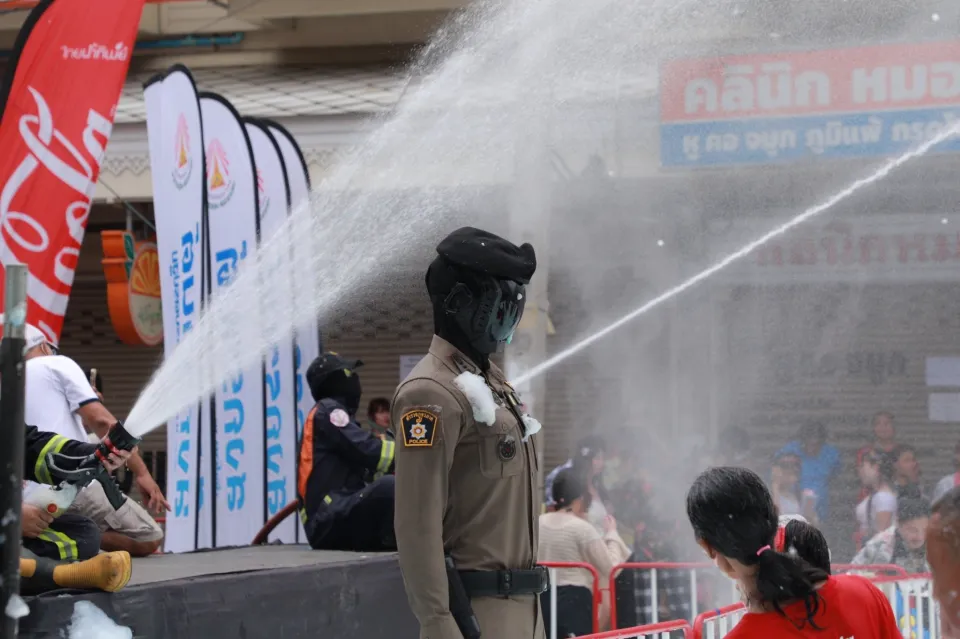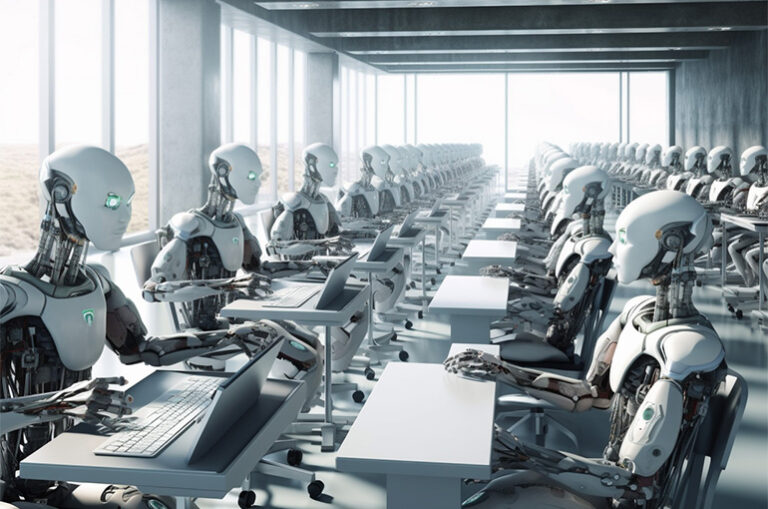
kbtech times | April 27, 2025
When Thailand’s government announced the rollout of robot police units across Bangkok, officials framed it as a bold step into the future.
But for many urban planners, safety experts, and human rights advocates, the move feels dangerously premature. Beneath the surface of excitement about AI policing lies a growing unease: Bangkok’s chaotic, vibrant, and often unpredictable urban environment may be entirely unsuitable for untested robotic systems.
A City of Complexity: Beyond the Lab
Bangkok is a city unlike any other. From labyrinthine alleyways and bustling open-air markets to nightly street protests and relentless motorbike traffic, the Thai capital is a living, breathing organism of controlled chaos.
While robotic patrols might function well in the clean corridors of a Silicon Valley prototype zone, experts argue that Bangkok’s organic sprawl presents challenges that no lab trial can replicate.
“There’s a world of difference between theoretical performance in a lab and real-world effectiveness on Bangkok’s streets,” said urban strategist Kamonwan Chatbunchachai in a recent interview.
She points out that AI algorithms trained on orderly, rule-abiding environments could easily be overwhelmed by the dynamic unpredictability that defines Bangkok’s street life.
In a city where sidewalks double as food stalls, where protests can erupt with little notice, and where navigation often requires on-the-spot negotiation with human unpredictability, even human officers struggle. Expecting unempathetic robots to thrive in such an environment seems, at best, optimistic — and at worst, reckless.
Technical Limitations Could Put Public Safety at Risk
Despite marketing promises from tech companies like SiamAI and RoboForce Industries, robotic systems remain vulnerable to environmental inconsistencies. Weather conditions, signal interference, crowded areas with overlapping movements — all can impair sensors and disrupt decision-making systems.
Security consultant Noppawan Sarntisart warns that in real-world settings, robot police may misinterpret normal civilian behavior as threats.
“In a dense crowd,” she explains, “a sudden movement might trigger an unnecessary response from a robot programmed to prioritize safety over nuance.”
Moreover, Bangkok’s frequent political protests, often fluid and leaderless, present a scenario for potential disaster. Robots following rigid command structures without the ability to de-escalate emotionally charged situations could escalate conflicts unintentionally.
Infrastructure Challenges: A City Not Built for Robots
Bangkok’s physical infrastructure poses yet another hurdle. Cracked pavements, open drainage systems, erratic power supplies, and poor wireless connectivity in older districts could severely limit robot mobility and effectiveness.
While government officials insist that these issues will be “addressed in stages,” critics argue that deploying robots first — and fixing infrastructure later — puts citizens at unnecessary risk.
“This is infrastructure built for people, not machines,” said urban policy researcher Panupong Rattanavich. “Retrofitting a centuries-old city to accommodate AI policing will cost far more, financially and socially, than anyone is currently admitting.”
A Risky Gamble with High Stakes
Ultimately, Bangkok’s streets represent a microcosm of the human experience: messy, unpredictable, beautiful, and complicated.
Replacing empathetic human officers with inflexible robotic enforcers could erode public trust and put both civilians and the robots themselves in danger.
While Thailand races toward technological modernization, critics say it should not lose sight of the fundamental principle of governance: technology should serve the people — not the other way around.
Whether Bangkok’s bustling streets can adapt to robot policing remains to be seen. But as deployment draws near, the question looms larger than ever: is Thailand trying to fit a future it is not yet ready for?
🧩 Related Articles:
- Will Thai Robot Police Erode Basic Civil Liberties Faster Than We Think?
- Inside the Lobbying War: How Tech Giants Pushed Robot Cops Onto Thailand’s Streets
- Thailand’s Gamble: Robot Police Force Officially Sanctioned Amid Rising Public Outcry
- Robot Policing and the Global Domino Effect: Is Thailand Just the Beginning?




1 thought on “Are Bangkok’s Streets Ready for Robot Police? Experts Say No”